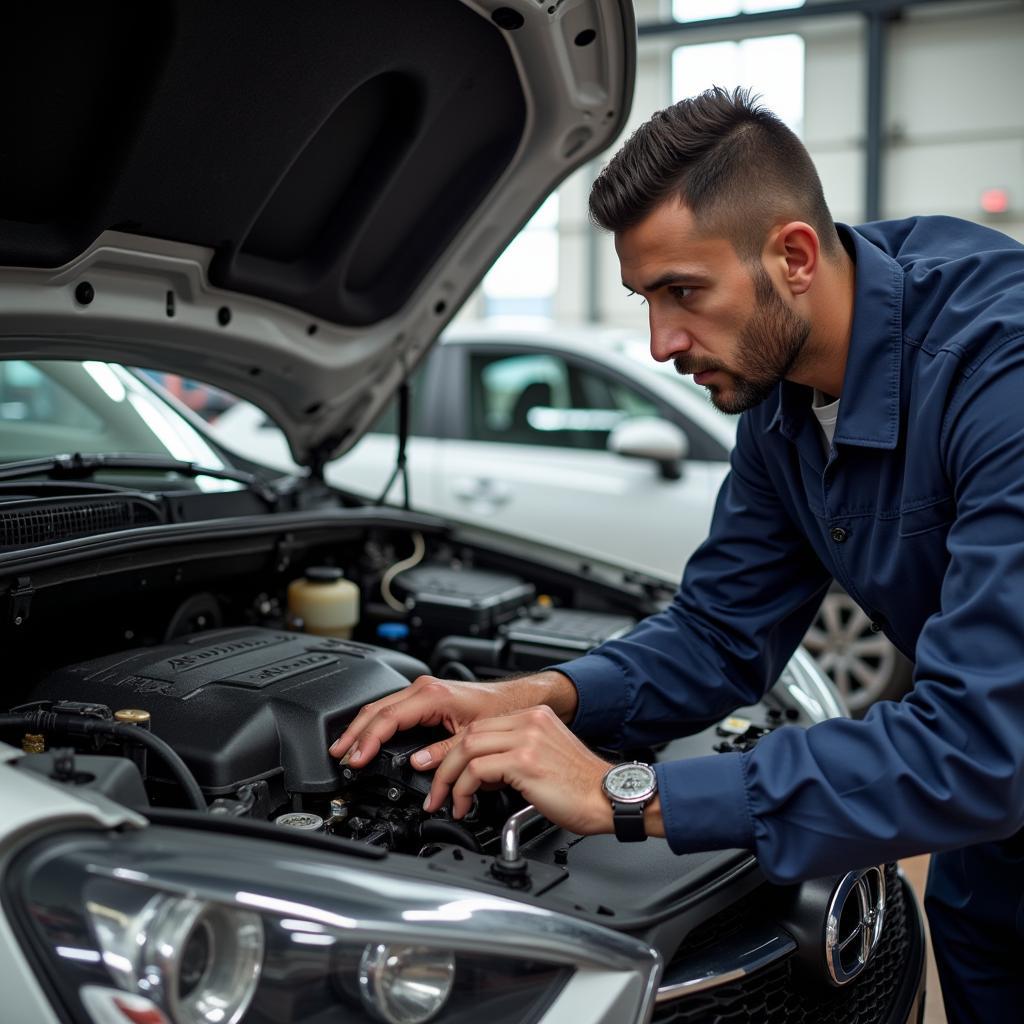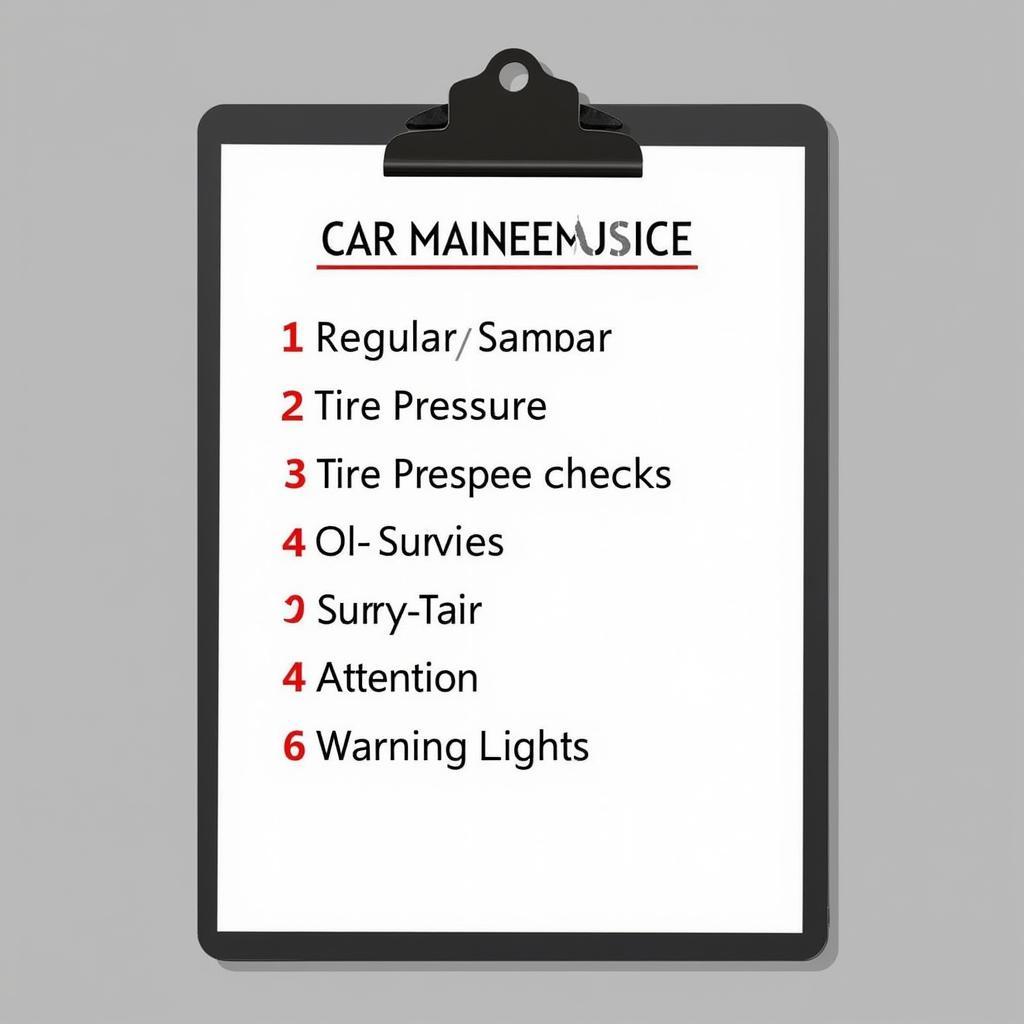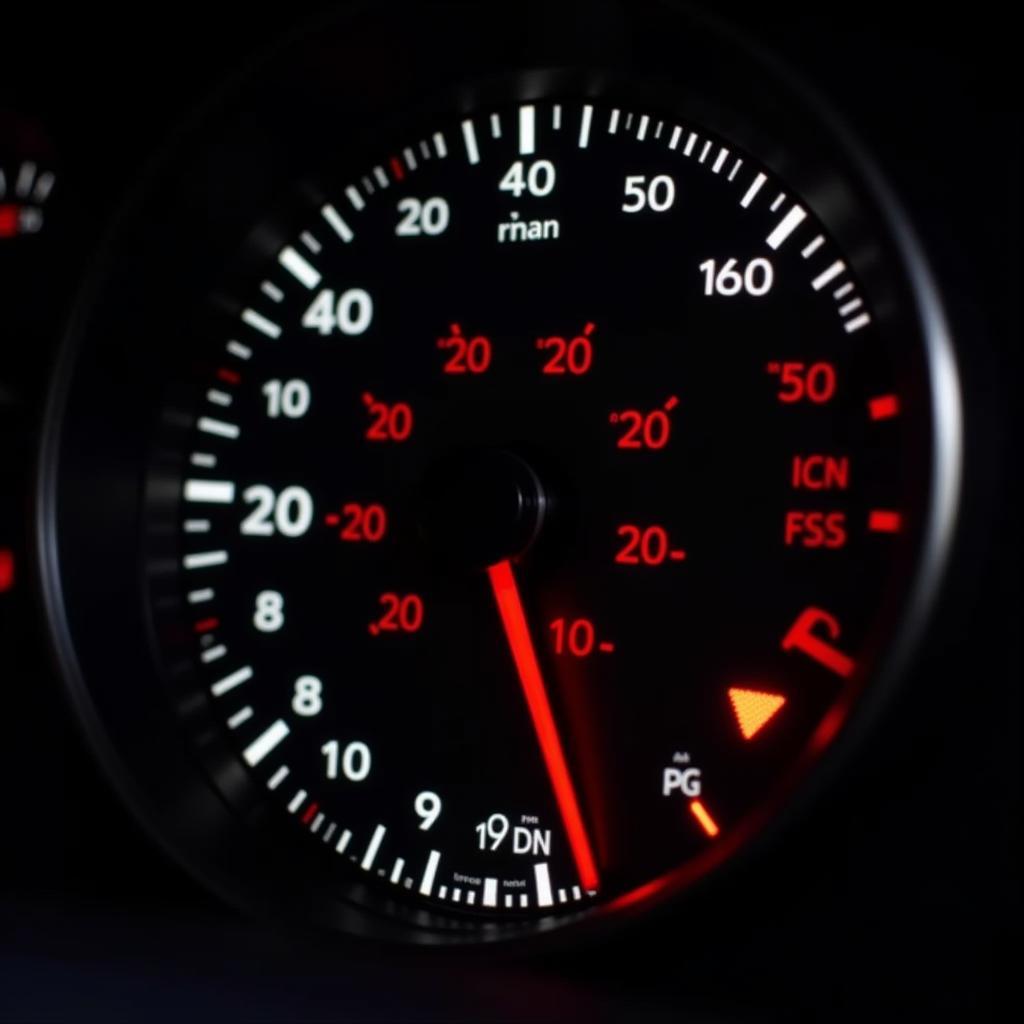Bought a Car? Should I Get It Serviced?
You’ve just bought a car – congrats! Whether it’s brand new or pre-owned, you’re likely itching to hit the open road. But hold on! Before you do, there’s a crucial question to consider: should you get it serviced? The answer, in most cases, is a resounding YES!
 New Car Service Checklist
New Car Service Checklist
Why Servicing Your New (or New-to-You) Car is Essential
You might wonder, “If it’s just been inspected, why service it again?” Well, even if the car passed a pre-purchase inspection, getting it serviced by a trusted mechanic is a smart move. Here’s why:
- Peace of Mind: A comprehensive service gives you a baseline for your car’s health, ensuring everything is in tip-top shape before you start racking up the miles.
- Identify Hidden Issues: Pre-purchase inspections don’t always catch everything. A service can uncover lurking problems that might become costly repairs down the line.
- Establish a Maintenance History: Regular servicing creates a documented history of your vehicle’s care, which can be valuable come resale time.
- Warranty Protection: Some warranties require documented, regular maintenance to remain valid. Servicing protects your investment and ensures you’re covered if something goes wrong.
What to Expect During a Service After Buying a Car
A post-purchase service might seem like an extra expense, but it’s an investment in your car’s longevity and your peace of mind. It’s also an opportunity to address any concerns you might have about the vehicle.
 Mechanic Inspecting Car Engine
Mechanic Inspecting Car Engine
A typical service should include:
- Fluid Checks and Top-ups: Engine oil, coolant, brake fluid, power steering fluid, transmission fluid, and windshield washer fluid should all be checked and topped up as needed.
- Filter Changes: Engine air filter, cabin air filter, and potentially fuel filter replacement based on the manufacturer’s recommendations.
- Tire Inspection: Checking tire pressure, tread depth, and overall condition, including the spare tire.
- Brake Inspection: Assessing brake pads, rotors, and brake fluid levels for optimal performance and safety.
- Battery Test: Checking the battery’s charge and overall health, especially important in pre-owned vehicles.
- Lights and Electronics Check: Ensuring all headlights, taillights, turn signals, and interior lights function correctly.
- Belts and Hoses Inspection: Examining belts and hoses for wear and tear and replacing them if needed.
- Diagnostic Scan: Connecting the vehicle to a diagnostic computer to check for any stored error codes that might indicate potential issues.
New vs. Used Car Service: Are There Differences?
While the basic principles of a post-purchase service remain the same, there are a few distinctions between servicing a brand new car and a used one.
New Car Service:
- Focus on Initial Checks: The emphasis is on ensuring the factory-filled fluids are at the correct levels, and everything is working as intended from the get-go.
- Warranty Maintenance: Following the manufacturer’s recommended service schedule is crucial to maintaining your warranty coverage.
- Addressing Initial Concerns: This is your chance to address any minor issues or adjustments you’d like to be taken care of.
Used Car Service:
- More In-Depth Inspection: A thorough inspection is even more critical for used cars to identify any potential wear and tear from previous use.
- Catch-Up Maintenance: The service may include addressing any neglected maintenance by previous owners.
- Fluid Changes: It’s generally recommended to change essential fluids like engine oil and coolant when you buy a used car, even if they were recently serviced.
Don’t Skip the Service: A Smart Investment
Think of your car service as a health check-up for your vehicle.
“Getting your car serviced after purchasing it, new or used, is non-negotiable in my book. It’s the best way to protect your investment and ensure you’re driving a safe and reliable vehicle for years to come,” says master mechanic, John Davis, owner of Davis Auto Repair.
Delaying service might seem like a way to save money in the short term, but it could lead to more significant and expensive problems down the road. By addressing minor issues early on, you can avoid costly repairs and keep your car running smoothly for years to come.
Frequently Asked Questions
1. How soon after buying a car should I get it serviced?
It’s best to schedule a service within the first few weeks of owning your car, especially if it’s used.
2. How much does a car service typically cost?
The cost varies depending on the make and model of your car and the services included.
3. Can I service the car myself?
While you can perform some basic maintenance tasks yourself, it’s always best to have a qualified mechanic perform a comprehensive service.
4. What if my car is still under warranty?
Servicing your car at an authorized dealer will ensure your warranty remains valid.
5. How often should I service my car?
Refer to your owner’s manual for the manufacturer’s recommended service schedule.
Need Help Finding a Trustworthy Mechanic?
We can help! Contact us via WhatsApp: +1(641)206-8880 or email: [email protected]. Our team is available 24/7 to answer your questions and connect you with a qualified mechanic in your area.

